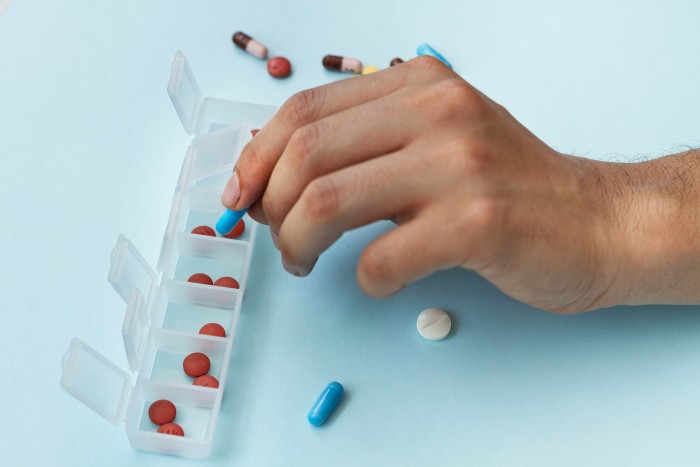IMANA NEWS
Why is the Overuse of Antibiotics Dangerous?
18 November 2025

Antibiotics have changed the world. They treat infections that were once life-threatening, and they save lives every day. But did you know antibiotics can be harmful, too?
Few people are aware that if used too often or incorrectly, antibiotics can have long-term consequences for their health.
This is why, every year from 18–24 November, the world recognizes World Antimicrobial Resistance Awareness Week.
In this blog, we look at the dangers connected with the overuse of antibiotics.
We also help you understand what you can do to create awareness and promote their responsible use in your community.
Why are Antibiotics Harmful?
Most of us have taken antibiotics at some point, maybe for a throat infection, a sinus infection, or an ear infection.
But antibiotics do not help with every illness. They only treat bacterial infections.
Viral infections such as colds, flu, most sore throats, or COVID-19 cannot be treated with antibiotics.
When antibiotics are used when they are not needed, or when we do not take them correctly, bacteria learn to resist them.
That means the medicine may not work the next time we truly need it.
In fact, according to several studies, antimicrobial resistance (AMR) is one of the top 10 global public health threats.
If antibiotic resistance continues to rise, surgeries, cancer treatments, childbirth, and even minor injuries could become more dangerous.
What Causes Antibiotic Resistance?
Antibiotic resistance happens when bacteria change in response to the medicines designed to kill them. This can happen naturally over time, but misuse speeds it up.
Some common causes include:
Taking antibiotics when you do not need them
Using antibiotics for viral infections encourages bacteria in the body to adapt and resist.
Not finishing the full course
Stopping early gives bacteria a chance to survive and come back stronger.
Taking leftover medication
Medications prescribed for someone else or for a past illness may not be right for your current condition.
Overprescribing in healthcare
Sometimes antibiotics are prescribed “just in case,” even when a viral infection is suspected.
Use in agriculture and livestock
Antibiotics are frequently used in animals to promote growth or prevent disease, and this can create resistant bacteria that spread to humans through food or the environment.
The After-Effects of Antibiotic Resistance
The impact of antibiotic resistance reaches far beyond one person or one infection.
When bacteria stop responding to treatment, everyday illnesses become harder to cure, and medical care becomes more complicated for everyone.
Some of the most common consequences include:
- Longer and more complicated illnesses — infections that once cleared in days may take weeks or even months to treat.
- Higher medical costs — more doctor visits, longer hospital stays, and stronger, costlier medications can place a heavy burden on families.
- Increased risk of life-threatening infections — resistant bacteria can spread quickly in hospitals and communities, making even routine care risky.
- Fewer treatment options — people with weakened immune systems, such as cancer patients or those recovering from surgery, are especially vulnerable when standard antibiotics fail.
- Greater global health risk — resistant infections can spread across borders through travel, trade, and food supply chains, threatening global health systems.
According to global studies, at least a million deaths each year are directly linked to antibiotic-resistant infections, and the number continues to rise.
Why You Should Take Antibiotics Responsibly
Using antibiotics safely not only protects you; it protects your family, your community, and everyone who may need these medicines in the future.
Responsible use means:
- Only taking antibiotics when a doctor prescribes them
- Never taking someone else’s medicine
- Completing the full course, even if you feel better
- Asking your doctor if antibiotics are truly needed
Sometimes, we feel pressure to get antibiotics quickly.
We want to feel better fast. But taking antibiotics “just in case” can do more harm than good. Often, rest, fluids, and over-the-counter medicines are all you need for a viral illness.
If a doctor tells you antibiotics will not help, that is not a dismissal; it is a sign of good care.
It means they are protecting your health today and your ability to fight infections in the future.
Why are antibiotics overprescribed?
Antibiotics are often overprescribed for a few reasons:
- Patient expectations: Some people feel they need antibiotics to “get better faster.”
- Uncertainty: Sometimes infections are unclear, and antibiotics are given as a precaution.
- Time pressure: Quick visits can lead to quick prescriptions.
- Misunderstanding: Many still believe antibiotics work for viral illnesses.
Awareness and communication can truly help.
Asking your doctor, “Do I really need antibiotics for this?” is a strong and responsible step. It shows you care about your health and the health of others.
Protecting the Power of Antibiotics
The theme for World AMR Awareness Week 2025 is “Act Now: Protect Our Present, Secure Our Future.”
Each of us can make a difference in the battle against the overuse of antibiotics—you could educate a loved one, or share the message more widely.
At IMANA, we believe education and compassion go hand in hand.
Through our health programs and community outreach, we work to raise awareness about antibiotic resistance and guide families toward safer, more informed healthcare decisions.
Together, we can slow resistance, protect these life-saving medicines, and strengthen community health for generations to come.
This World Antimicrobial Resistance Awareness Week, take a moment to learn, share, and act.